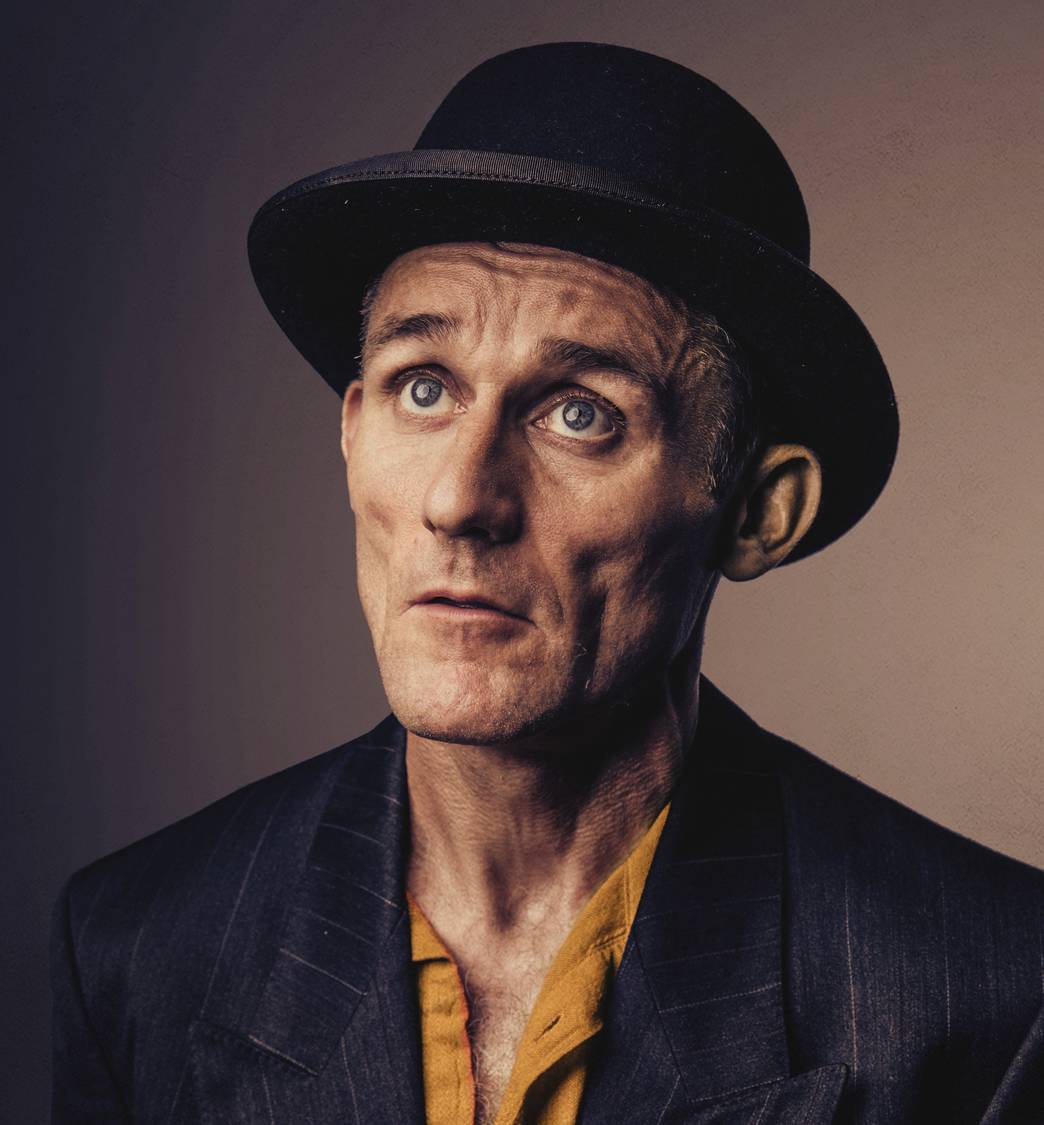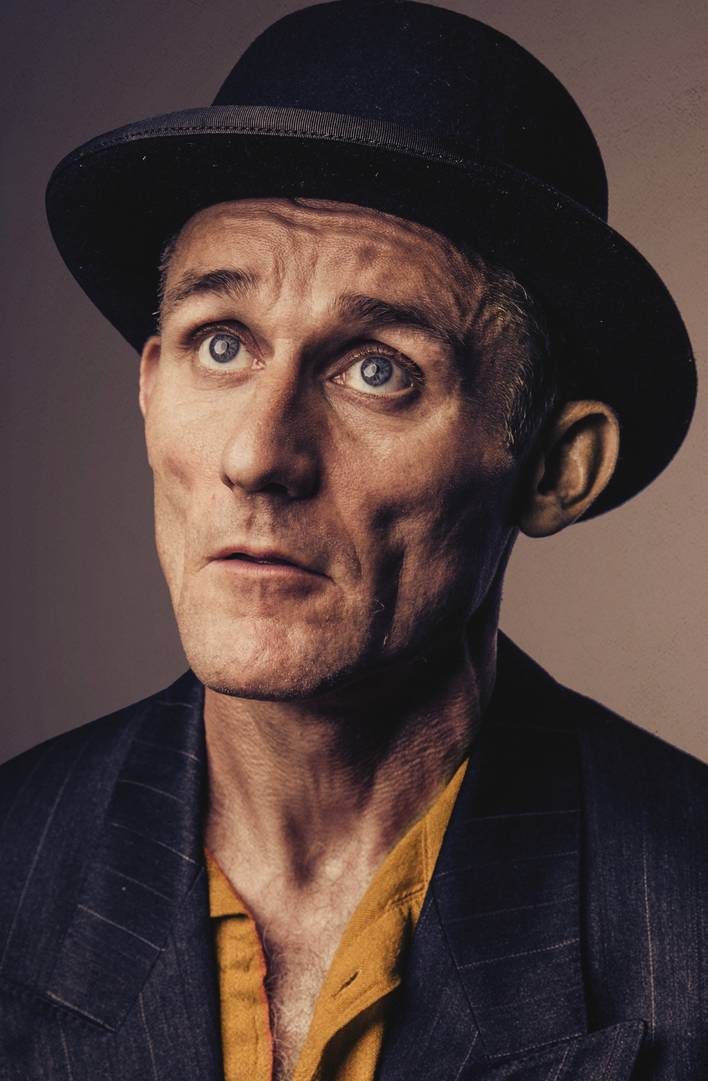 Two hungry, battered drifters wait by a dead tree. They might have been here yesterday. And they might well come back tomorrow. Unless Mr Godot arrives first. Which he might, if they’re lucky. Which they don’t tend to be.
Two hungry, battered drifters wait by a dead tree. They might have been here yesterday. And they might well come back tomorrow. Unless Mr Godot arrives first. Which he might, if they’re lucky. Which they don’t tend to be.
The Everyman Theatre company presents Samuel Beckett’s iconic play about the struggle for purpose, the power of friendship and the hunt for a pair of decent boots. Fresh and urgent as ever, this new production is brought to you by the team behind Quartet, Mrs Warren’s Profession and The Glass Menagerie and stars Alan Digweed (better known to Gloucestershire audiences as Tweedy) the star of Giffords Circus and the Everyman Theatre’s acclaimed pantomimes.
Tweedy has been a clown for the past twenty-five years but is now preparing to step out of his comfort zone for the second time after his debut straight acting role in Michael Hasted’s sell-out production of The Dock Brief in the Everyman Studio four years ago.
But Tweedy is not your conventional clown. There are no big boots, no red nose and garish make-up. He keeps it simple with just a bright red quiff of hair and a bit of eye liner. His act/persona is much more akin to the old silent movie stars like Stan Laurel or Buster Keaton or, more recently comedians like Max Wall. Tweedy is funny in his bones. If he was capable of it, seeing him just standing still would be funny.
What did he think his years of experience as a clown in circus and pantomime could bring to a stage play? It is often accepted that comedians often make very fine straight actors – think Eddie Izzard, Hugh Laurie and Max Wall. What did he think made that so? He thought for a moment. ‘Well obviously, with the comedy, it’s the timing but I think most comedians look at how people behave; their mannerisms and things like that. Comedy is about observing people and I think that’s one of the key things that can help with creating characters.’ It’s true that observation was the key. Timing is not the sole prerogative of the comedian or clown; it is also an essential tool for an actor or any other performer, come to that.
There is a huge difference between acting and clowning so what did Tweedy think the main differences between the two disciplines were and what would he have to be particularly aware of? ‘One thing I am going to have to be careful of is scenes that are particularly physical or fast paced because when I get excited I automatically go into clown mode, so I think I need to watch that. It’s also not having that safety net that I am used to, as a clown, where I can speak directly to the audience. If something goes wrong to a clown, it’s a gift. Even if I forget my words I can turn that around and make it funny, which is great. If I forget my words in this….’ he trailed off, looking pensive.
A lot of actors will talk about breaking down the fourth wall; the invisible wall at the edge of the stage that separates actors and audience. I suggested to Tweedy that his main concern was to establish it. ‘That’s right; I need to build it up. It will be difficult,’ he conceded, ‘it will be much more difficult than any role I go into as Tweedy.’
Tweedy has long harboured an ambition to do a Beckett play. ‘Yes, I love Beckett stuff and it’s very close to clowning although, having said that, I couldn’t do a Beckett play as Tweedy.’ That’s true and, of course, one of his heroes, Max Wall, appeared as Vladimir in Waiting for Godot at the Roundhouse in London back in 1981.
All will no doubt be revealed in Paul Milton’s production of Samuel Beckett’s iconic Waiting for Godot which is at the Everyman in Cheltenham from 7th – 16th February.


